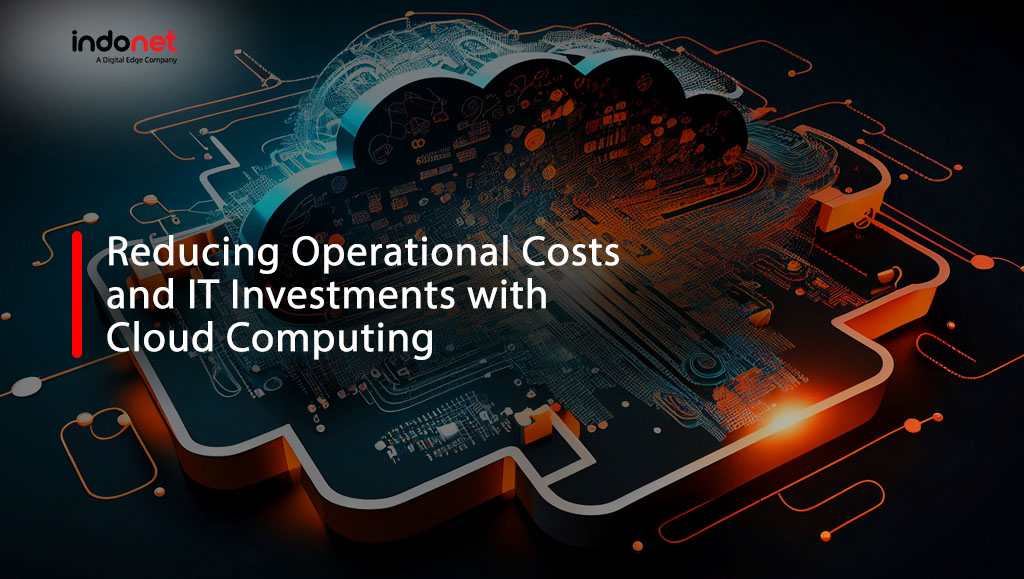Investments for broader purposes are essential for companies, especially in technology. One technological investment that should not be overlooked is cloud computing, which can offer many benefits to businesses. Learn more about cloud computing as an IT investment below!
Understanding Cloud Computing
Cloud computing involves the use of integrated services such as data storage, servers, databases, networks, and software through the internet, whether from private networks or shared internet networks.
Supporting cloud computing, people can use the cloud for storage without requiring devices like hard disks, allowing data to be accessed anywhere and anytime.
With the advancement of technology, applications supporting cloud computing can now be accessed through websites without the need to install or purchase applications from specific developers.
Types of Cloud Applications
Cloud-supported applications are categorized into several types:
- Storage and Collaboration: These applications allow users to store documents online securely and share data with selected individuals easily. Examples include Google Drive, iCloud, and Dropbox.
- Customer Relationship Management (CRM): Used in businesses for managing consumer interactions, sales guides, and other customer-related data. Examples include Salesforce CRM.
- E-commerce: These cloud applications help online store owners manage product catalogs, process payments, and handle orders. Examples include Shopify and BigCommerce.
- Project Management: These cloud applications are used to manage project work, enabling collaboration among several people from various locations online. Examples include Asana and Monday.com.
- Social Media Marketing: These applications are used in the digital era to monitor the success of marketing through social media by evaluating the performance of each content uploaded. An example is Hootsuite.
Types of Cloud Computing
Cloud computing can be categorized based on two criteria: deployment and service models.
Cloud Computing by Deployment
- Private Cloud: Also known as an internal cloud, this service is dedicated to a specific organization or company. Due to its exclusive nature, it can only be accessed by authorized personnel within the organization, offering benefits like self-service, flexibility, additional control, and extra security through firewalls and internal hosting.
- Public Cloud: Provided by third parties, making it accessible to anyone, anywhere. Public cloud services are available in free or paid (pay-per-use) modes, allowing businesses to save costs related to purchasing, managing, and maintaining infrastructure.
- Hybrid Cloud: A combination of private and public clouds. Hybrid clouds facilitate the transition of workloads between the two cloud types, adapting to computing changes. In the event of computational fluctuations, a company can shift workloads from a private to a public cloud to handle excess computing, ensuring data remains secure.
Cloud Computing by Service Model
- Infrastructure as a Service (IaaS): Provides services, storage, and networks through a virtual interface. Users can control storage, operating systems, and applications without directly managing the cloud. Infrastructure management is handled by third-party vendors.
- Platform as a Service (PaaS): Offers development and deployment environments in the cloud, allowing users to use applications without the complexity of underlying infrastructure. PaaS is available from vendors on a pay-as-you-go basis, accessible through secure connections, simplifying application control for companies without managing the infrastructure.
- Software as a Service (SaaS): Enables users to access software from vendors in the cloud via a subscription system. Users don’t need to install software and can access it through websites or APIs. SaaS providers manage hardware, middleware, software applications, and security.
Cloud Computing as an IT Investment
The use of cloud computing has accelerated since the COVID-19 pandemic, which necessitated remote work, increasing the need for data management and interpersonal communication. Today, cloud computing is a vital investment for companies operating their businesses.
What are the benefits of cloud computing as an IT investment?
- Cost Reduction: IT systems in companies often require substantial management costs. Cloud computing allows companies to use IT management-supporting infrastructure without significant expenses. Companies don’t need to purchase cloud software but can pay on a pay-as-you-go basis.
- Scalability: Cloud computing helps companies scale up as business demand increases, adjusting to needs.
- Flexibility and Collaboration: Cloud computing offers greater flexibility and collaboration opportunities. It allows data access from anywhere online according to given authority and facilitates collaborative projects from different locations.
- More Competitive Business: Cloud computing enables companies to develop more competitive businesses by handling various aspects like IT infrastructure maintenance, software licensing, and data management and security.
- Extra Security: Alibaba Cloud is certified internationally, including ISO 27001 and PCI DSS, and provides security services like Anti-DDoS, WAF, security groups, and security centers.
Indonet, Cloud Service Solutions for Various Businesses
You now understand cloud computing as an IT investment and its benefits for business. If you need cloud computing solutions, Indonet can be the choice. Indonet provides cloud services tailored to your business needs.
Indonet is a partner of global cloud providers such as Amazon Web Services, Google Cloud Interconnect, and Alibaba Cloud. For more information, please visit the Indonet website at indonet.co.id.

